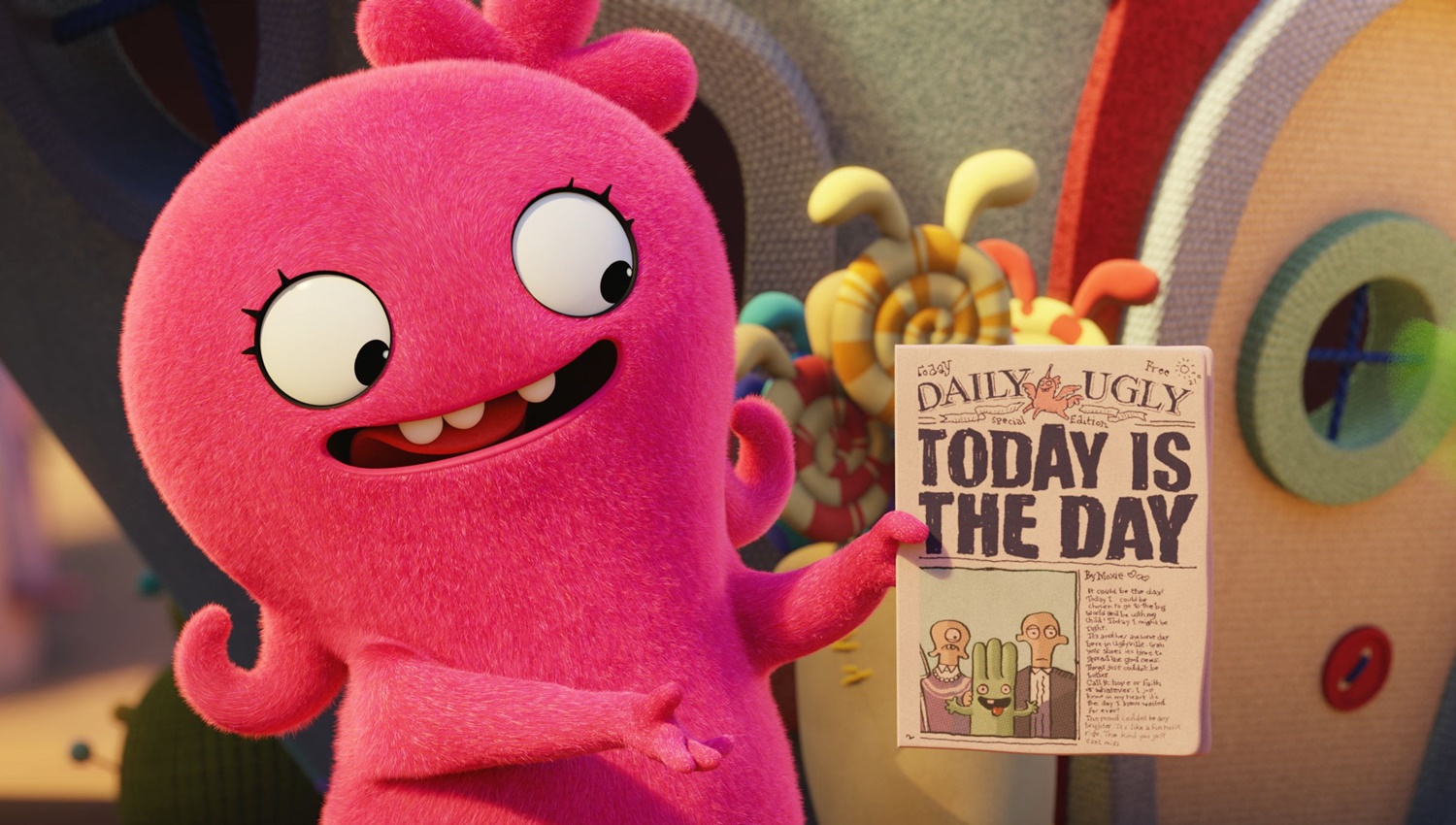
Ugly Dolls
Dustin Chase
UglyDolls is not really about being ugly; it’s about being different or outside the mold. The message is worthwhile, but it takes a long time to get there, and the means of delivering it simply doesn’t measure up in terms of being interesting, entertaining, or inspiring. On the contrary, it seemed to me that I was enduring an extended commercial made by advertising executives trying to sell the concept of inclusiveness (including messages like “Satisfaction guaranteed” along the way). The film has catchy tunes, but the story itself is without much creativity.
The “ugly” dolls are actually appealing, and Moxy (Clarkson) stands out for her perseverance and “we can do it” attitude. It is rewarding to see her actively ignore naysayers—even among her friends and mentor, Ox (Shelton)—and press on towards her dream of going to the “big world” (being chosen to be a real child’s doll). Her ever-loyal friends—Babo (Iglesia), Mandy (Monae), Wage (Sykes), and Lucky Bat (Wang)—stay with her all the way, even when they’re puzzled and questioning of her.
The principles of inclusion are presented in such simplistic terms.
Moxy’s main adversary in her endeavor—when she and her pals finally make it to the “Institute of Perfection”—is Lou (Jonas), the trainer of dolls, who claims they have to be perfect so they will be chosen and loved by a child in the “big world” and never be discarded—or in Lou’s terms, “recycled.” Lou is the narcissistic idol of the dolls in perfection land who is impeccably coifed and dressed and always ready with a cutting remark about how others could improve their appearance. (The focus is, of course, on physical appearance.) He refers to Moxy and her friends as “a little band of sock puppets” who could never “pass through the gauntlet;” that is, be accepted as a lovable doll. He fits the idol mold in that all the dolls in his realm constantly look for his approval and attention. Everyone wants to be special, of course. And he can make that happen—unless, of course, the doll is hopeless. Then it should be sent to recycling.
Director Kelly Asbury and her creative team perhaps aspired to the likes of Pinocchio, Ratatouille, or Ponyo, but this production doesn’t measure up to the creative genius in those earlier works, primarily because the principles of inclusion are presented in such simplistic terms (i.e., focusing primarily on physical appearance). Not as much was highlighted about how much quality of life was so much better in Uglytown before they lost confidence in themselves, than it was in the Perfection Institute.
The actors, Clarkson, Jonas, Monae, Sykes, Iglesias, Wang, Shelton, and Roberts are delightful in their renditions of the characters, and that is truly enjoyable, along with the artistic animations and sets.
Final Thought
There are much better movies for children than UglyDolls
